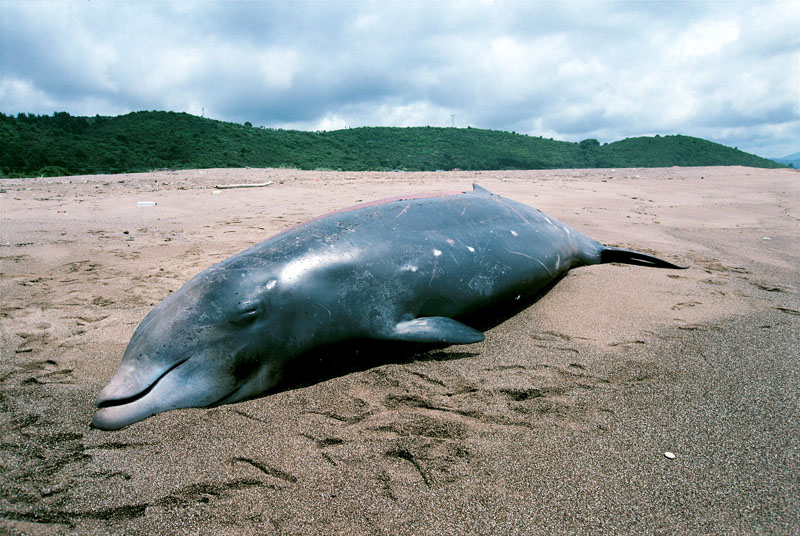Greece: Oil exploration linked to stranding of protected whales off Corfu
Coinciding with seismic activities off Corfu, Greece, two Cuvier’s beaked whales stranded on beaches of the popular holiday island this morning – on International Whale Day – in a distance of 30 kilometres. One animal was rescued and refloated back into the sea, the second whale is currently still stranded. It is unclear whether the two animals have a chance of survival.
OceanCare, numerous scientists and other marine conservation organisations had urged the Greek authorities not to issue a permit for seismic activities in the Hellenic Trench. The area is identified as Important Marine Mammal Area (IMMA) and is home for endangered species, such as deep-diving Cuvier beaked whales and sperm whales. The wider activities have also taken place close to a strictly protected Natura 2000 site. However, the Greek authorities have ignored the marine conservationists’ appeals and even suspended the implementation of a mandatory environmental impact assessment, although this is required under both EU law and according to Greece’s international commitments, which includes the need to apply the CMS Family Guidelines on Environmental Impact Assessments prior to noise generating activities and the ACCOBAMS Noise Guidelines.
The research vessel «SW Cook» has been active in Greek waters since the beginning of February and most recent evidence suggests that the «SW Cook» has proceeded to the Ionian Block offshore Greece to conduct further seismic exploration.[1] During seismic activities, air guns are deployed, which produce impulsive noise up to 260 decibels when surveying the seabed. The immense noise covers an area of thousands of square kilometres. This intense underwater noise is life-threatening for numerous marine species, from the smallest crustaceans to the largest whales. Atypical whale strandings, such as the one off Corfu, appear in time area context to intense underwater noise generating activities.
«The whale stranding is probably only the tip of the iceberg; many more animals and not only whales may have been harmed. Animals exposed to this intense sound may get killed and sink to the bottom of the sea, while it just a few may be washed ashore dead or alive» says Nicolas Entrup, Director of International Relations at OceanCare.
«We are calling on Greece as well as other governments to halt all seismic activities and therefore to oil exploration. Continuing oil exploration is incompatible with the goals of the Paris Agreement. They ignore the climate crisis we face and threatens whales and other marine life in the Mediterranean» says OceanCare spokesperson Nicolas Entrup.
[1] This is further corroborated by tracing the vessels activities through Marine Traffic, available at: www.marinetraffic.com/en/ais/home/centerx:20.3/centery:39.6/zoom:7

